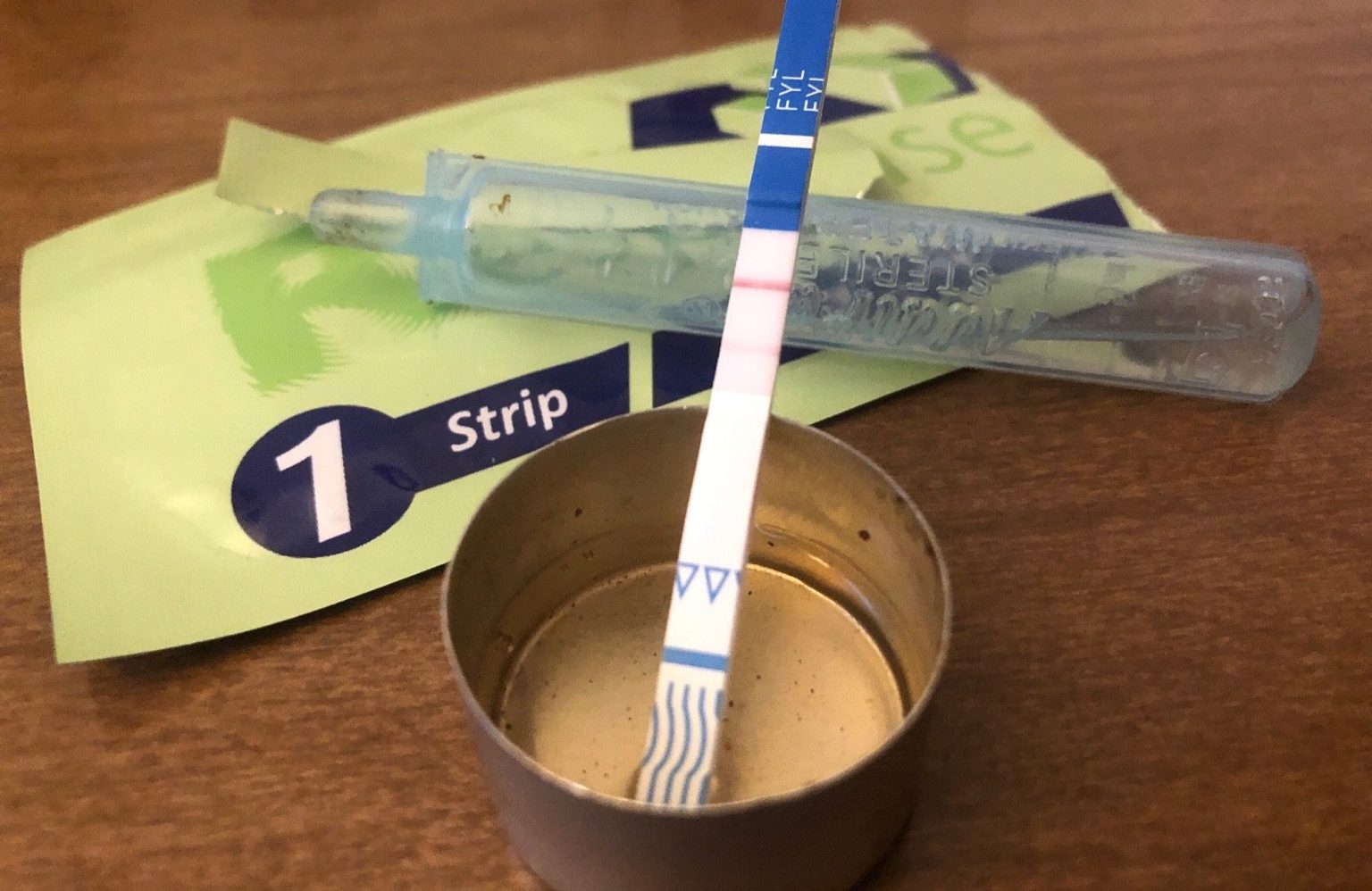A bipartisan bill in Kentucky would decriminalize fentanyl test strips. In early March, House Bill 353, introduced by Rep. Kimberly Moser (R), unanimously passed the House Judiciary Committee. It’s now in the hands of the state Senate, which, like the House, is Republican-controlled.
“We are very hopeful and optimistic that the Senate will see this issue as the crisis that we do and take action,” state Representative Rachel Roberts (D), one of the bill’s sponsors, told Filter.
Harm reduction workers in the Appalachian state also hope that the legislation progresses.
Fentanyl test strips are inexpensive drug-checking tools that enable people simply to find out whether fentanyl is present in the substance they intend to use. This knowledge informs people’s decisions about whether to use and the harm reduction strategies they may employ.
Currently, fentanyl test trips are considered drug “paraphernalia” in Kentucky. The designation includes many other items employed to facilitate safer drug use—such as other testing equipment, syringes, and “Objects used, intended for use, or designed for use in ingesting, inhaling” various substances, among others. Breach of this law can result in a misdemeanor charge, with a maximum sentence of one year in prison and a fine of $500.
The concern that police could charge someone with possession of these tools deters people from carrying them for personal use, Waldon said.
HB353 would remove fentanyl test strips from this list. Advocates say that this would be an important move in stemming overdose deaths in Kentucky. The state suffered 2,250 such deaths in 2021—73 percent of which involved fentanyl. While many people who regularly use opioids may expect fentanyl to be present in their supply, people taking counterfeit pharmaceutical pills, for example, may be much less aware.
The Kentucky Harm Reduction Coalition (KHRC), based in Louisville, has been able to hand out the test strips in the state since 2021 through an initiative that has federal government support. However, Shreeta Waldon, KHRC’s executive director, said there could still be large benefits from legalizing the strips generally.
She told Filter that in Jefferson County, where she operates, she has not heard reports of people being charged with the possession of fentanyl test strips. Nor has she received confirmation of it happening in other parts of the state. However, the issue is that there’s some ambiguity.
The concern that police could charge someone with possession of these tools deters people from carrying them for personal use, Waldon said. Some harm reduction providers, too, may be deterred, and barriers like this just make harm reduction work more difficult, she added.
Waldon, who has nearly 20 years’ experience of working in the field, has seen how fentanyl test strips can help people stay alive, wherever they are in their journey with drug use, substance use disorder, or returning to use after a period of abstinence. Misunderstanding and stigma are behind a tool like this being illegal in the first place, she said. “It’s a lack of knowledge.”
“Maybe, just maybe, we are moving in a direction of solutions.”
Rep. Roberts is the daughter of a substance use disorder counselor, so the bill is close to her heart, she said. “I think this is a great way for people to be able to make sure that they’re using what they think they’re using to try and prevent overdoses.”
Further, it would enable nonprofit and community groups around the state to be able to “step up” and “help people stay as safe as they can.”
“This is yet another tool in our arsenal,” she added.
Waldon expressed that it would also be valuable to remove other harm reduction tools from the list of prohibited “paraphernalia,” such as safe smoking or snorting equipment. Still, she’s hopeful about the current bill, both for what it does specifically and for what it could signal about attitudes in Kentucky.
“Maybe, just maybe, we are moving in a direction of solutions, and really focusing on healing our communities,” she said.
Photograph by Filter staff





Show Comments